informatik
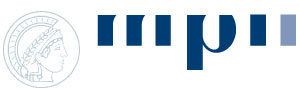
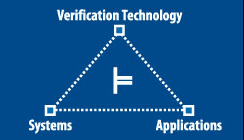
The second summer school on verification technology, systems & applications takes place at the INRIA Center Nancy, France from October, 12th-16th. We believe that all three aspects verification technology, systems & applications strongly depend on each other and that progress in the area of formal analysis and verifiation can only be made if all three aspects are considered as a whole. Our five speakers Daniel Le Berre, Patricia Bouyer, Leonardo de Moura, Stephan Schulz, and Benjamin Werner stand for this view in that they represent and will present a particular verification technology and its implementation in a system in order to successfully apply the approach to real world verification problems.
The number of participants in the school is limited to 40. We expect participants to hold a bachelor (or higher) degree in computer science (or equivalent) and to have basic knowledge in propositional and first-order logic.
The summer school is free of charge. It includes the lectures, daily coffee breaks and lunches and the special summer school dinner on Wednesday. Participants take travel, accomodation and daily living costs on their own. Recommendations on hotels can be found below.
Please apply electronically by sending an email to Manuel Lamotte-Schubert (lamotte (at) mpi-inf.mpg.de) including
until the 30th August 2009. Notifications on acceptance will be given by 11th September 2009.
The registration will be open to accepted applicants starting on 11th September 2009.
All lectures will take place in room C005.
| October 12 Monday |
October 13 Tuesday |
October 14 Wednesday |
October 15 Thursday |
October 16 Friday |
|
|---|---|---|---|---|---|
| 9.00-12.30 | Daniel Le Berre Slides Part 1 |
Leonardo de Moura Slides Part 2 Extra Slides |
Stephan Schulz All Slides |
Benjamin Werner | Patricia Bouyer Slides Part 1 |
| 12.30-14.00 | Lunch break | ||||
| 14.00-17.20 | Leonardo de Moura Slides Part 1 |
Daniel Le Berre Slides Part 2 |
Benjamin Werner | Stephan Schulz All Slides |
Patricia Bouyer Slides Part 2 |
| 17.30-18.30 | Presentations by participants | Presentations by participants | Presentations by participants | ||
| Evening | School Dinner | ||||
Daniel Le Berre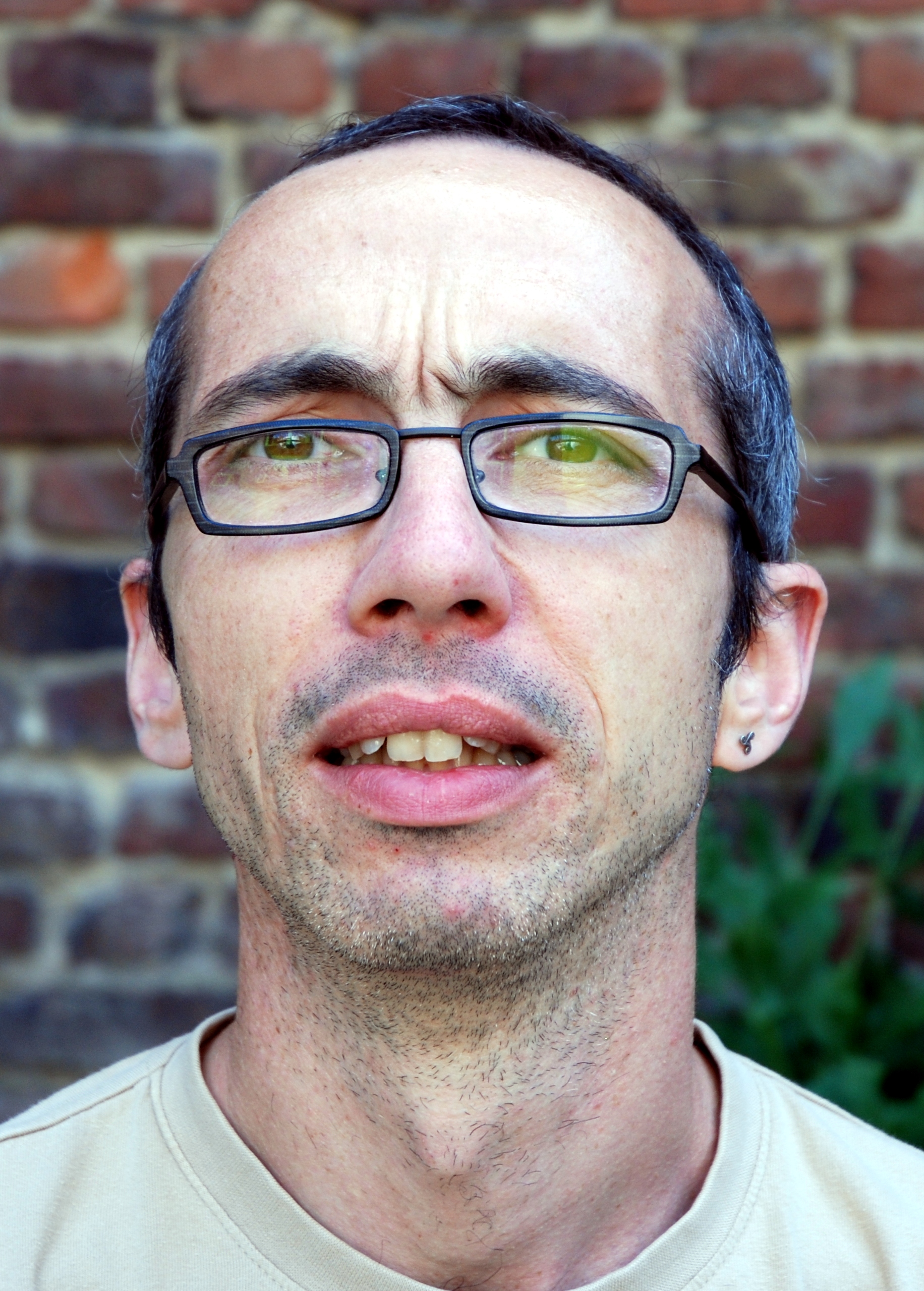
|
SAT and related technologies from a practitioner perspective Improvements in the practical resolution of SAT is driven by applications: Bounded Model Checking in Electronic Design Automation has been a major component for the success of SAT engines for solving "real" combinatorial problems at the end of the 90s, Bioinformatic and Software engineering are currently two areas where SAT engines receive a lot of interest.
In this lecture, we will focus on the theory behind modern SAT solvers
tailored to solve "real" combinatorial problems, and discuss their
extension to optimization problems such as pseudo boolean optimization
and MAXSAT. |
|
Patricia Bouyer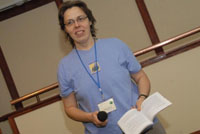
|
On the verification and control of timed systems In this tutorial, we will present the basics of the verification of timed automata, from theoretical and decidability issues to algorithms and tools. We will then discuss recent challenges that are being investigated, like the modelling of resources (e.g. energy) in timed systems. |
|
Leonardo de Moura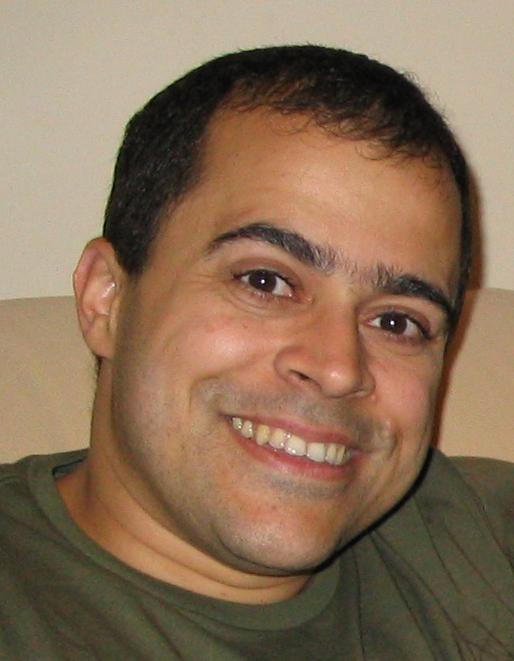
|
On Designing and Implementing Satisfiability Modulo Theory Solvers |
|
Stephan Schulz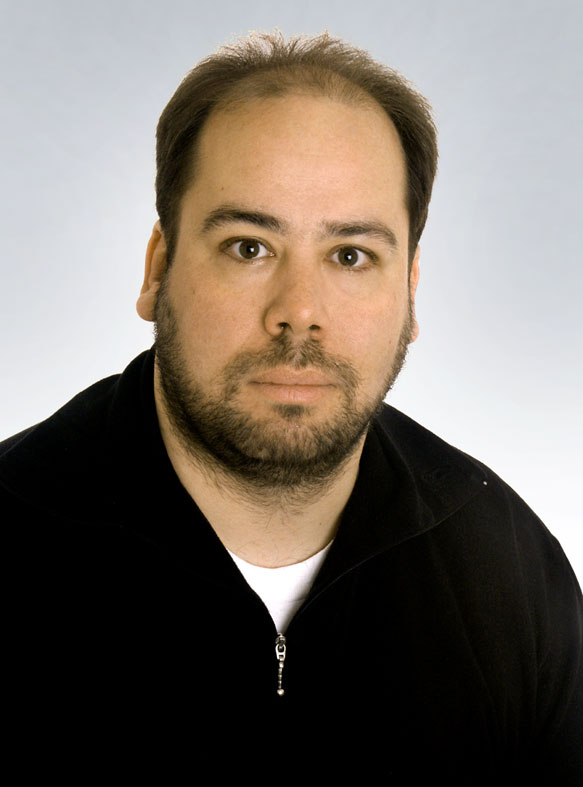
|
Implementation of First-Order Theorem Provers After a short discussion of the logic and the calculus, the lecture will cover the basic structure of a modern first-order theorem prover based on clausification and saturation with redundancy elimination. We will discuss the representation of the search state, the basic saturation algorithm, search heuristics, and efficient algorithms and data structures for implementing the most important operations. A particular focus will be on proof search and on the implementation of practically important simplification techniques.
Practical exercises for the "Implementation of First-Order Theorem Provers" will
require a laptop with a UNIX/Posix tool set, in particular "make", "gcc", and
basic UNIX utilities. |
|
Benjamin Werner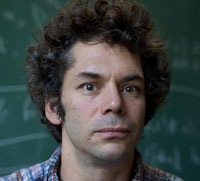
|
Coq proofs: the case of prime numbers Exactly the same situation can be observed when formalizing primality proofs in a system like Coq. We will thus use this as a guideline for exploring various proof-styles supported by Coq, and particularly proofs involving computations. |
The participants are responsible for their room reservations. Here is a list of recommended hotels. It is convenient to choose a hotel in the center, and to use the tram to reach the INRIA Center Nancy. You may also visit the Nancy Tourism Office website for other hotels (online booking is available).
Hotel All Seasons Nancy Centre Gare
3 rue de l'Armee Patton
54000 Nancy
(5 minutes by foot from the station)
Phone: +33 (0)3 83 40 31 24
Website: http://www.accorhotels.com/gb/hotel-6852-all-seasons-nancy-centre-gare/index.shtml
Hotel Akena Nancy
41 rue de Raymond Poincare
54000 Nancy
Phone: +33 (0)3 83 28 02 13
Website: http://www.hotel-akenanancy.com/
Hotel Le Guise
18 rue de Guise
54000 Nancy
Phone: +33 (0)3 83 32 24 68
Website: http://www.hoteldeguise.com
Hotel Ibis Nancy Centre Gare
3 rue Crampel
54000 Nancy
Phone: +33 (0)3 83 32 90 16
Website: http://www.ibishotel.com
Hotel Best Western
5, rue Chanzy
54 000 Nancy
Phone: +33 (0)3 83 17 54 00
Website: http://www.bestwestern.fr/hotelcrystal
Hotel des Prelats
56 place Mgr Ruch
54 000 Nancy
Phone: +33 (0)3 83 30 20 20
Website: http://www.hoteldesprelats.com
Youth Hostel
There is a youth hostel located at a castle very close to the LORIA (5 minutes walk). Rooms have about 3 or 4 beds. The price per person per night is 13,90 Euros and includes sheets and breakfast.
Château de Rémicourt
149 rue de Vandoeuvre
54600 Villers-lès-Nancy
Phone: +33 (0)3 83 27 73 67
Website: http://www.fuaj.org/
The Summer School 2009 will take place at INRIA Center Nancy.
General instructions: Nancy is located roughly 300km east of Paris, 130km west of Strasbourg, and 100km south of Luxembourg. The Metz-Nancy Lorraine regional airport is mainly served by domestic flights, but it may be an option if your incoming flight goes to Lyon. There is a regular shuttle service to Nancy train station. The closest international airports are Paris (Charles de Gaulle and Orly), Luxembourg, and Frankfurt (Germany). More adventurous spirits may try Frankfurt-Hahn or Bâle-Mulhouse airports.
Nancy is reached in 1.5 hours by TGV from Paris, with some direct trains from Charles de Gaulle airport. There are regular train connections from Luxembourg and Germany (Frankfurt via Metz, direct trains from Munich and Stuttgart).
TGV trains from Paris (Gare de l'Est) to Nancy arrive at Nancy train station. TGV trains from other destinations (such as Charles de Gaulle airport), or those that continue to Strasbourg and Stuttgart stop at TGV Gare Lorraine, which is close to the Metz-Nancy airport and served by the same shuttle service.
Nancy is well known for its 18th-century city center around Place Stanislas, for its Art Nouveau buildings, and as a center of research and higher education.
The Nancy Jazz Pulsations take place from 6th - 17th October. If you are interested, please see the website of Nancy Jazz Pulsations.
Most problably, people will be arriving by train. Nancy only has a regional airport, so also people arriving to the nearest international airports (Paris, Luxemburg, Frankfurt, etc.) will probably complete their journey by train.
There are two ways to reach the INRIA Center Nancy from the Train Station:
![[The Train Station]](g/gare.png)
In the map you can see the situation of the Train Station and the nearest stop of Tram 1. Take the tram towards Vandoeuvre, Chu Brabois until Callot stop (it is a 20 minutes ride).
There are ticket machines (you'll need coins though, bills or cards are not accepted) at the stop of the tram. Please note, that you cannot buy the ticket on the tram, so remember to buy the ticket before boarding the tram.
The following pdf file might be useful:
The Summer School 2009 will take place at the building of
LORIA. The building is highlighted in the map below. We have also marked the path from the nearest tram station (stop Callot, of Tram
1). It takes about 5 minutes to walk from the tram station to the
LORIA site.
![[From the Callot Stop to the LORIA]](g/planCampus.png)
Here is a detailled plan of the location. Please note that the bus stops "UFR Staps" and "Grande Corvée" are identical.
In the
LORIA building, you will be able to get an Internet connection, either
in the room with machines, or using your own notebook with WiFi
connection.
General OrganizationLocal Organization
WebsiteFor comments or questions send an email to Stephan Merz (stephan.merz (at) loria.fr). The summer school is organized by INRIA Nancy and the Max Planck Insitute for Informatics Saarbrücken and also sponsored by the University of Luxembourg, represented by Jun Pang. In 2010 the summer school on verification technology, systems & applications will take place at the University of Luxembourg and will be organized by Jun Pang. |
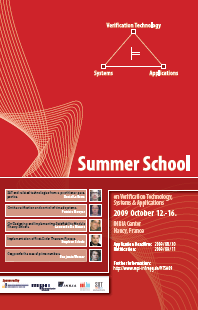 |
Photos of the event can be found here.